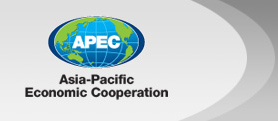APEC economy: Canada; Jurisdiction: Northwest Territories
Temporary practice ('fly-in, fly-out' practice)
There is no express rule allowing temporary practice by foreign lawyers.
Limited licensing of foreign lawyers (foreign legal consultant rules)
A foreign lawyer cannot obtain a limited licence entitling them to offer advisory services in foreign and international law (ie become a foreign legal consultant).
Full licensing
A foreign lawyer can obtain a full licence to practise law in this jurisdiction.
The relevant legislation is the Legal Profession Act and the Rules of the Law Society of the Northwest Territories.
In order to obtain a full licence to practise law in this jurisdiction, foreign lawyers must apply to the National Committee on Accreditation for evaluation of their legal credentials and experience. The National Committee on Accreditation establishes the educational and practising criteria an applicant must meet to be considered for admission to the Law Society. Once an applicant satisfies those criteria, he or she must follow the same process for admission as domestic graduates. These requirements are the same as the rules applicable to a local applicant, except that most local applicants would have a Canadian law degree and thus would not have to apply to the National Committee on Accreditation for equivalency, and instead would apply directly to the Law Society of the basis of the Canadian law degree.
As at June 2009, no full licences had been granted to foreign lawyers in this jurisdiction.
Commercial association between lawyers and law firms
In this jurisdiction:
- local lawyers may be employed by another local lawyer of a local firm;
- local lawyers may be employed by a foreign lawyer or foreign firm;
- foreign lawyers may not provide services in some other form of commercial association with local lawyers;
- foreign firms are not permitted to establish a commercial presence (a permanent office) to offer advisory services in foreign and international law.
Other regulatory issues
In this jurisdiction:
- foreign lawyers cannot establish an office in the absence of enabling legislation;
- there are specific rules in relation to advertising. These rules are included in the Code of Professional Conduct, Chapter 14;
- there are specific rules in relation to use of names by lawyers or law firms. These rules are included in Policy Directive 11 (Firm name) (further details are included in the database).
Foreign lawyers and firms are treated the same as local lawyers in the application of these rules.
Contacts
| Category | Name | Website or other contact details |
|---|---|---|
| Organisation(s) that controls licensing of lawyers | Law Society of the Northwest Territories | www.lawsociety.nt.ca |
| Peak professional association representing the legal profession | Canadian Bar Association - Northwest Territories Branch | www.cba.org/northwest/main/home |
| Other associations playing a significant role in developing policy for the legal profession | Federation of Law Societies of Canada | www.flsc.ca |
Other issues
In Canada, regulation of the legal profession is the exclusive responsibility of the Provincial and Territorial Law Societies. Law Societies are mandated by provincial law and territorial legislation to regulate the profession in the public interest. This includes setting rules governing admission to the profession. As such, the regulation of foreign lawyers who wish to practise in Canada is governed by the rules of the individual Law Societies. Law Societies are not representatives of, or advocates for, the profession. That role is fulfilled by organisations such as the Canadian Bar Association and its branches.
